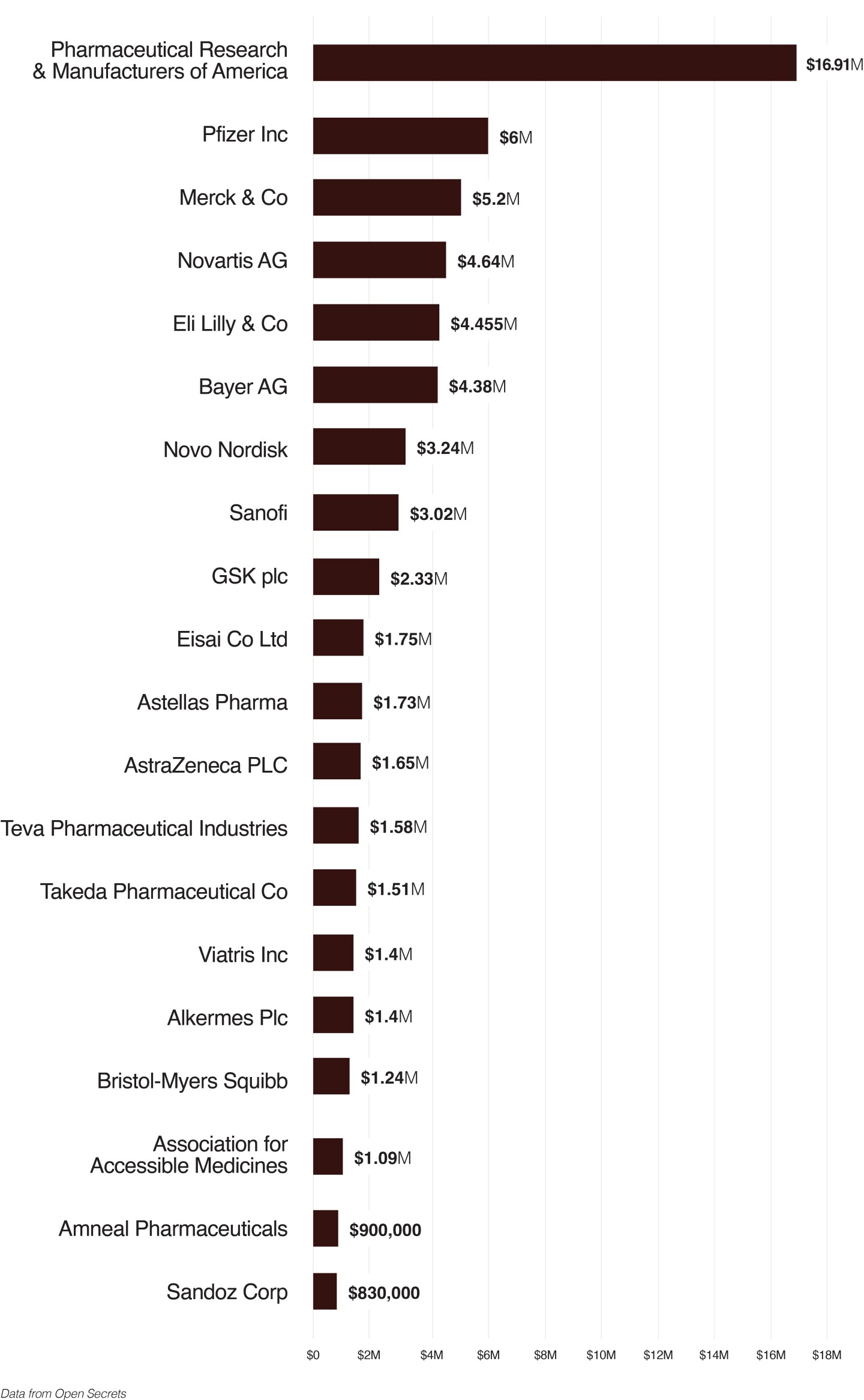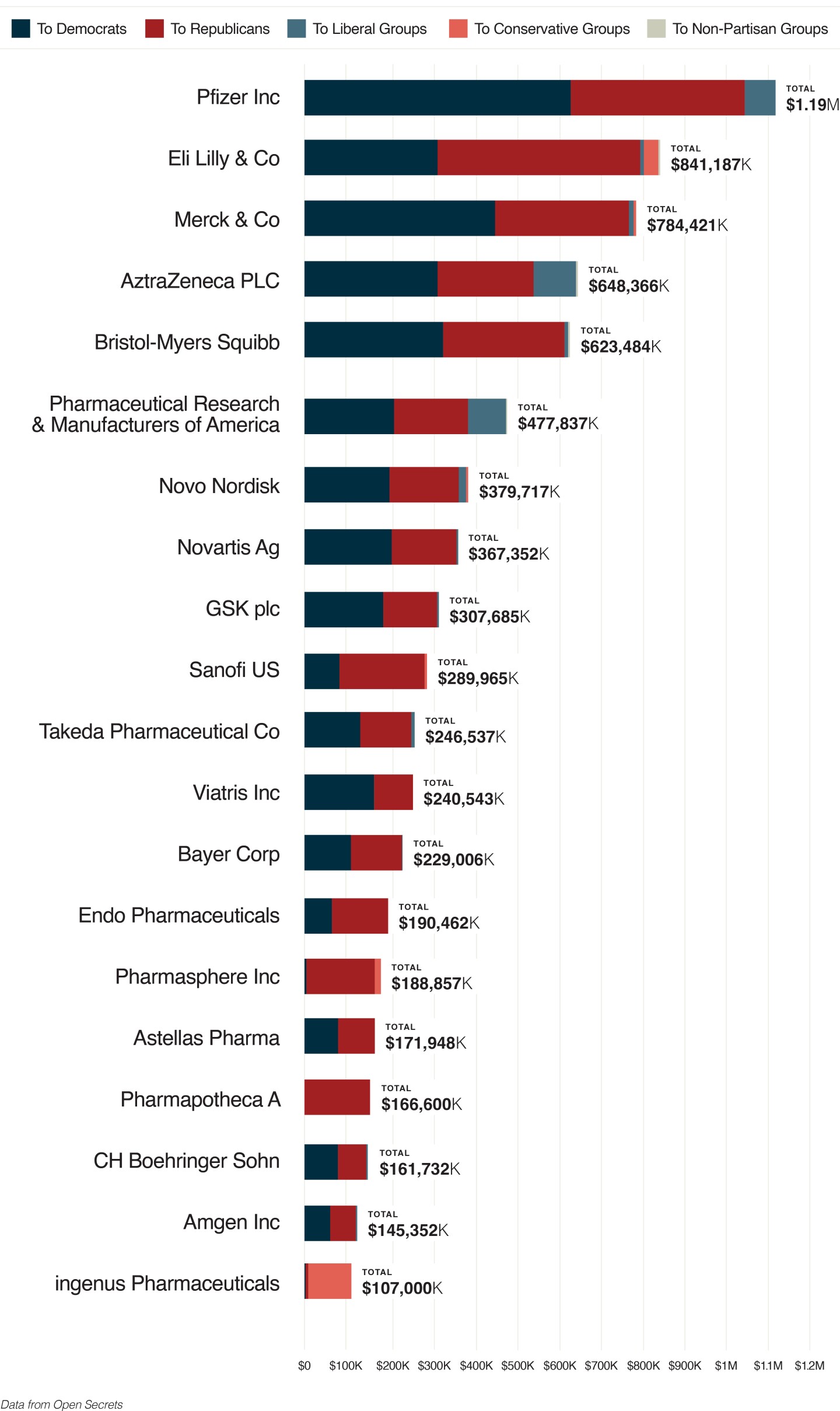Lobbying groups and individuals connected with the industry are supporting candidates from both parties, with a particular focus on the future of the 340B discount program and pharmacy benefit managers.
Another election season is well underway for the American public, with the presidential race now seemingly between former President Donald Trump and Vice President Kamala Harris. With the ramp-up of the campaign season come donations from thousands of interested parties, and, unsurprisingly, political action committees and individuals with ties to the pharma industry have been among those contributing millions to campaigns.
“I think any industry is looking at who could potentially win, who will have the most influence over drug policy or other industry policy, and I think that they’re making those calculations,” Erin Delaney, director of health care policy at the Progressive Policy Institute, told BioSpace.
BioSpace examined campaign data from Open Secrets to see how individuals and political action committees tied to the pharma industry have been spending between political parties.
By the Numbers
The nonprofit transparency group Open Secrets tracks spending by pharmaceutical and health product political action committees (PACs), which have spent $12,009,986 on campaign contributions in 2023 and 2024. The 111 pharmaceutical PACs have given over $5.2 million to Democrats, while around $6.6 million has gone to Republicans thus far in 2023 and 2024.
The top lobbying client in the pharma manufacturing sector is the Pharmaceutical Research & Manufacturers of America (PhRMA), which has a lobbying budget of over $16.9 million. Pfizer is second with $6 million available, followed by Merck, Novartis and Eli Lilly with $5.2 million, $4.6 million, and $4.4 million in 2023 and 2024, respectively.
According to Open Secrets, pharmaceutical companies have long been significant political spenders and have conventionally supported Republican candidates. Since the 1990 election cycle, Republicans have received around 64% of the average industry contributions.
However, looking at donations to the presidential race, Harris has been the top recipient of dollars from employees of pharmaceutical manufacturers, with well over $369,000 in 2023 and 2024. This is in stark contrast to Trump, who has only received around $182,000 from these donors in the same period.
Despite Harris having stated in a speech that she would work to cap prescription drug prices and take on the pharma industry, Delaney said that pharma, and those tied to it, may want to “show good faith” toward Harris and get into her good graces should she win the election.
Delaney suggested that those in the industry may view a Harris win as more likely. “But I think also they just want to make sure that they . . . can say, ‘hey, we donated to your campaign, right? We want to work with you,’” she said.
According to data compiled by Open Secrets, overall donations to the two parties from individuals tied to Pfizer have been among the highest among pharma companies, with $1.1 million. A more significant cash split has gone to Democrats and liberal groups over Republicans. So far, donations from Eli Lilly employees have totaled more than $800,000, with around $480,000 going to Republicans and $317,000 going to Democrats. Employees of Merck, Bristol Myers Squibb and AstraZeneca round out the top five contributors in pharma this year.
Pharma’s Policy Priorities
With this spending, what policy issues might pharma lobbyists be hoping to have a say on? According to Styles Strategy’s Scott Styles, a 35-year veteran in the government relations and public affairs sector, two significant issues for pharma currently are the 340B program and pharmacy benefit managers (PBMs).
Section 340B of the Public Health Service Act provides incentives for pharma companies that give providers discounts on specific products. It has faced several legal challenges. In March, for example, a U.S. Court of Appeals for the Eighth Circuit ruled against PhRMA, upholding an Arkansas law allowing healthcare providers to dispense drugs obtained at a discounted price via the federal program through certain pharmacies and prohibiting drugmakers from limiting the availability of their products to contract pharmacies.
However, in May, the U.S. Court of Appeals for the District of Columbia ruled in favor of pharmaceutical companies, finding that drugmakers can limit their discounts under 340B.
Likewise, PBMs have also been under the government’s microscope. The Federal Trade Commission released a report last month detailing the “enormous power” that PBMs wield, and the House has been holding hearings on the topic.
Styles said the Inflation Reduction Act (IRA) price negotiations are still crucial to pharma’s political agenda, but are a more low-key issue.
“Trying to roll back some of the changes that were made in the IRA, that’s something being done a little bit more quietly,” Styles said. “[You don’t] see as many of the ad campaigns [about the IRA] inside the Beltway [as] related to 340B and PBMs.”
Regarding the funding split between the two parties, Styles noted that Republicans control the House by a slim majority, while Democrats control the Senate by a small margin. With neither party in complete control, the dispersal of funds will be much closer.
“I think pharma tends to look at Democrats who get elected as going after pharma, if you will, rather than necessarily Republicans. But Trump has been very active on the drug pricing front, I think more so than maybe past Republican administrations,” Delaney said. “So I think they’re making their calculations for both” a potential Harris or Trump administration.










